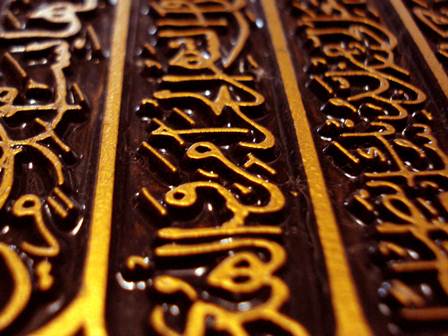| NOSTRA AETATE The Church regards with esteem also the Muslims. They adore theone God, living and subsisting in Himself; merciful and all- powerful, the Creator of heaven and earth, who has spoken to men; they take pains to submit wholeheartedly to even His inscrutable decrees, just as Abraham, with whom the faith of Islam takes pleasure in linking itself, submitted to God. Though they do not acknowledge Jesus as God, they revere Him as a prophet. They also honour Mary, His virgin Mother; at times they even call on her with devotion. In addition, they await the Day of Judgment when God will render their deserts to all those who have been raised up from the dead. Finally, they value the moral life and worship God especially through prayer, almsgiving and fasting. |
CHAPTER 2:
WHAT OUR FAITH (ISLAM AND CHRISTIANITY) TEACHES
Both Islam and Christianity call for dialogue and cooperation between Muslims and Christians.
CHRISTIANITY: The Gospels and especially the Parable of the Good Samaritan (Lk 10.25-37) teach that the call to love our neighbour does not just mean loving the person next door or a member of our own particular group or community. Reflecting this Gospel message, Church teaching regarding interreligious dialogue is very positive.
“The plan of salvation also includes those who acknowledge the Creator; in the first place among them are the Muslims: these profess to hold the faith of Abraham, and together with us they adore the one, merciful God, mankind’s judge on the last day.”
(Second Vatican Council, Lumen Gentium 16).
The Second Vatican Council’s Statement on the Relation of the Church Church to Non-Christian Religions, commonly called Nostra Aetate (right), portrays the positive attitude towards dialogue with Muslims that is reflected in most Christian denominations.
This document urges Christians and Muslims “to strive sincerely for mutual understanding” and “to make common cause of safeguarding and fostering social justice, moral values, peace and freedom.” In 1971 the World Council of Churches (WCC) representing Anglican, Protestant, and Orthodox churches, established an Office for Dialogue with People of Living Faiths. Since then both the WCC and the Vatican have sponsored m any meetings between Christians and Muslims. Unlike in the past, there is now, among most Christian denominations, a wish to promote mutual respect, understanding and cooperation between Muslims and Christians. This openness to interaction and cooperation reflects the Gospel call to “Love one another as I have loved you.”(Jn 13.34) All Christians therefore, have a part to play in creating a just society in which they can, faithful to their beliefs, live as good neighbours with people of other religions.
|
“All our encounters with people of other faiths must be based on the Christian principles of faith, hope and love. They ought also be based on respect for human rights, tolerance of difference and openness to new experiences and fresh learning. ” |
|
MUSLIM RESPECT FOR THE PROPHET For Muslims the Prophet is the exemplar of true Islam – his life example is seen by Muslims as the perfect model of how to be Muslim. Respecting this, the letters pbuh will be inserted each time the name of the Prophet is mentioned in this text. |
ISLAM: The Holy Quran, when referring to the attitude that Muslims should have towards Christians and Jews, says: “ argue with them in ways that are best ” (16.125) and calls on Muslims to “compete in good works” (i.e. to out-do Christians in their good works). The existence of different religious communities is recognised in the Quran: “Had thy Lord willed, he would have made mankind one nation.” (5.48) Muslim s are also called on to be patient in dialogue: “Bear, then, with patience, all that they say, and celebrate the praises of thy Lord , before the rising of the sun and before (its) setting”(50.39). There are many instances in the life example (the Sunna) of the Prophet Muhammad (pbuh – see over) that give guidance to Muslims on how to engage with Christians.
One such example is the Charter of Najran in which the rights of Christians are protected and guaranteed.
|
CHARTER OF NAJRAN Verily, these are my allies and have my secure charter against all that they hate. No one is to force them to travel or to oblige them to fight. The Muslims are to fight for them. No one of the Muslim nation is to disobey this covenant till the last day.” |
| Al Quran “Invite (all) to the Way of thy Lord with wisdom and beautiful preaching; and argue with them in ways that are best and most gracious.” Quran 16.125 “And dispute ye not with the People of the Book (Christians and Jews), except in the best way, unless it be with those of them who do wrong: but say, We believe in the revelation which has come down to us and in that which came down to you. Our God and your God is One; and it is to Him we submit.” Quran 29.46 “Had Allah willed He could have made you one community. But that He may try you by that which He hath given you (He hath made you as ye are). So vie one with another in good works.” Quran 5.48 |

To move on to Chapter 3 – Different kinds of Dialogue click here

You must be logged in to post a comment.